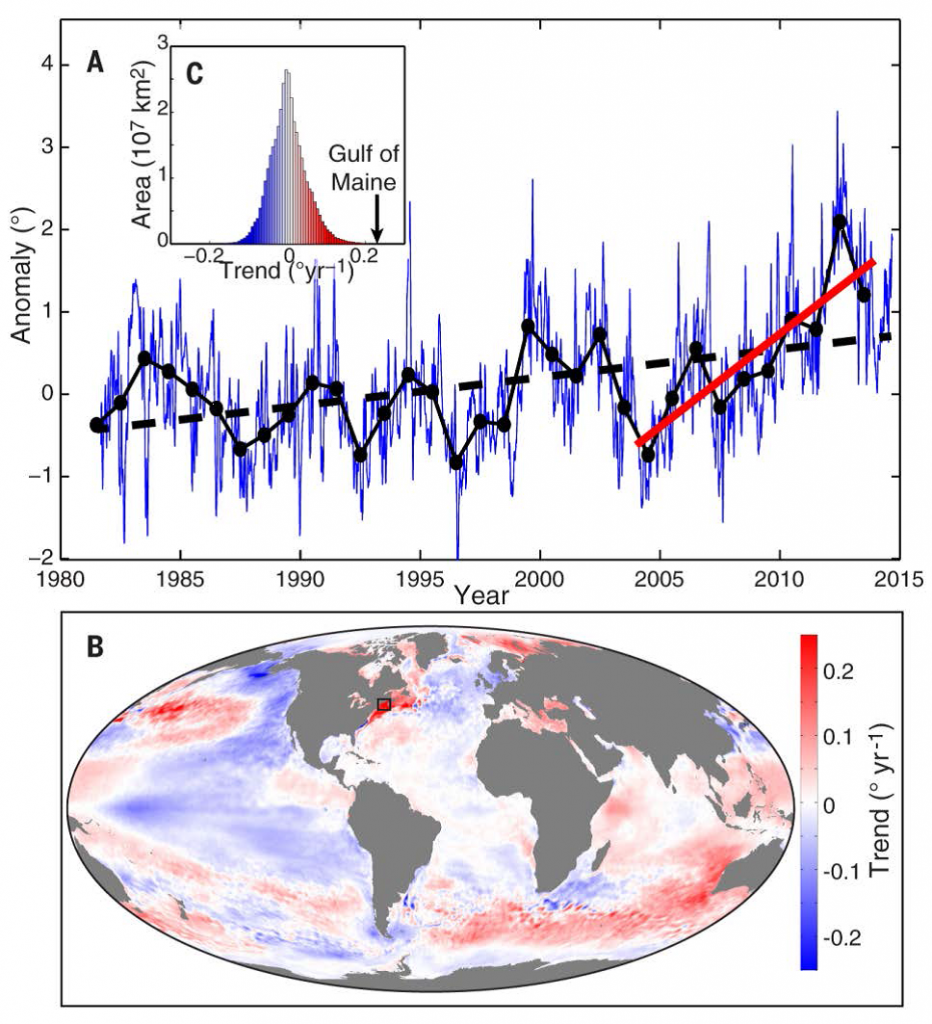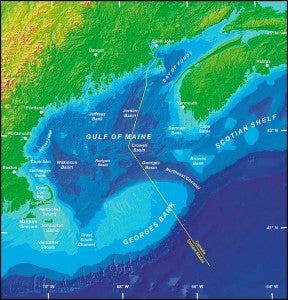
Heat map showing warming waters in the Gulf of Maine over time. Credit: Pershing et al.
Climate change is preventing cod from rebuilding in New England. Many scientists and fishermen believe this, and a study released last week in Science by Dr. Andrew Pershing from the Gulf of Maine Research Institute and his co-authors provides new evidence to support this claim.
A brief history
Cod, an iconic species and a mainstay of New England fisheries, were overfished for decades, with catch levels peaking during the 1980s. In 2010, the fishery transitioned to the current quota-based management system under an Annual Catch Limit (ACL). Bringing cod under a fixed quota system should have ended overfishing and brought about recovery of the stock, but in recent years the biomass of Gulf of Maine cod has continued to decline, and was estimated in 2014 to be at just 3-4% of sustainable levels. Fishermen are catching fewer cod every year, and the quota is now so low that most fishermen actively try to avoid catching them. Yet despite these very strict catch limits, Gulf of Maine cod have not rebounded and the region’s fishermen are suffering devastating economic consequences. Read More










